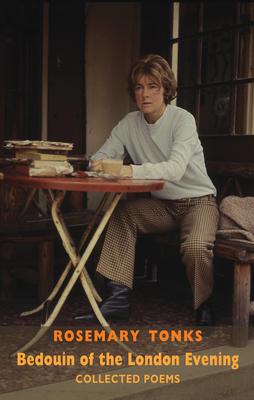The "disappearance" of the poet Rosemary Tonks in the 1970s was one of the literary world's most tantalising mysteries - the subject of a BBC feature in 2009 called The Poet Who Vanished. After publishing two extraordinary poetry collections - and six satirical novels - she turned her back on the literary world after a series of personal tragedies and medical crises which made her question the value of literature and embark on a restless, self-torturing spiritual quest. This involved totally renouncing poetry, and suppressing her own books. Interviewed earlier in 1967, she spoke of her direct literary forebears as Baudelaire and Rimbaud: 'They were both poets of the modern metropolis as we know it and no one has bothered to learn what there is to be learned from them...The main duty of the poet is to excite - to send the senses reeling.'
Her poetry - published in Notes on Cafes and Bedrooms (1963) and Iliad of Broken Sentences (1967) - is exuberantly sensuous, a hymn to sixties hedonism set amid the bohemian nighttime world of a London reinvented through French poetic influences and sultry Oriental imagery. She was 'Bedouin of the London evening' in one poem: 'I have been young too long, and in a dressing-gown / My private modern life has gone to waste.'
All her published poetry is now available here for the first time in over 40 years, along with a selection of her prose. This second edition has an expanded introduction and an additional prose piece.
